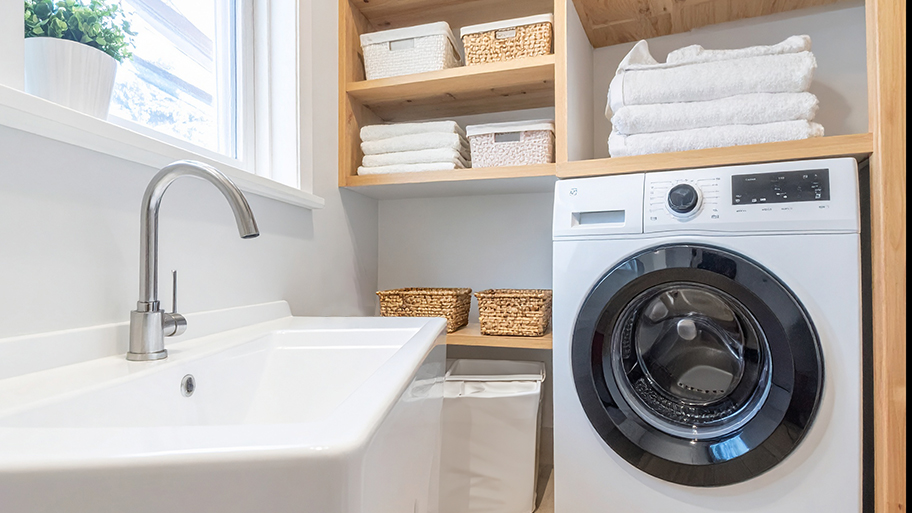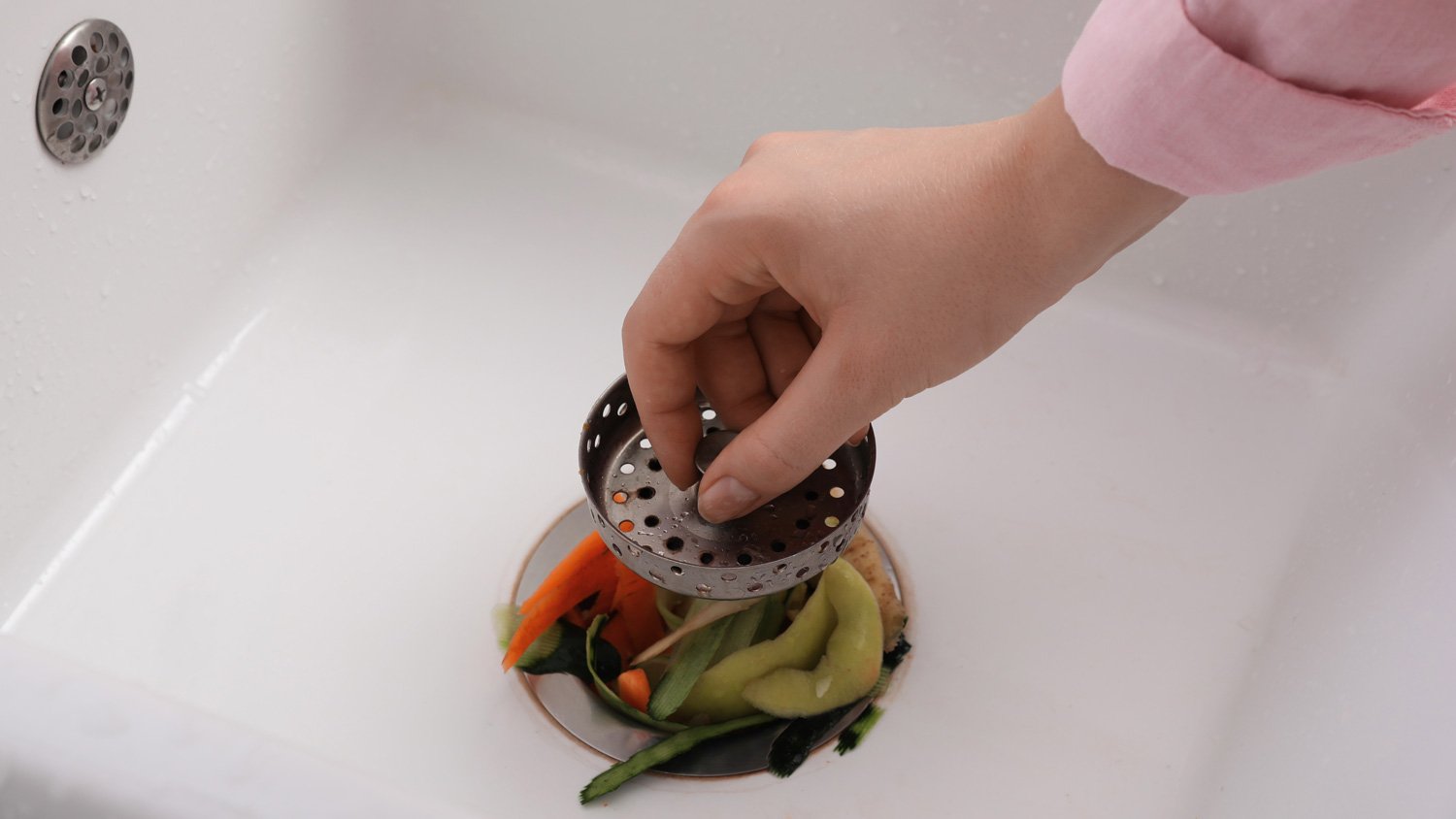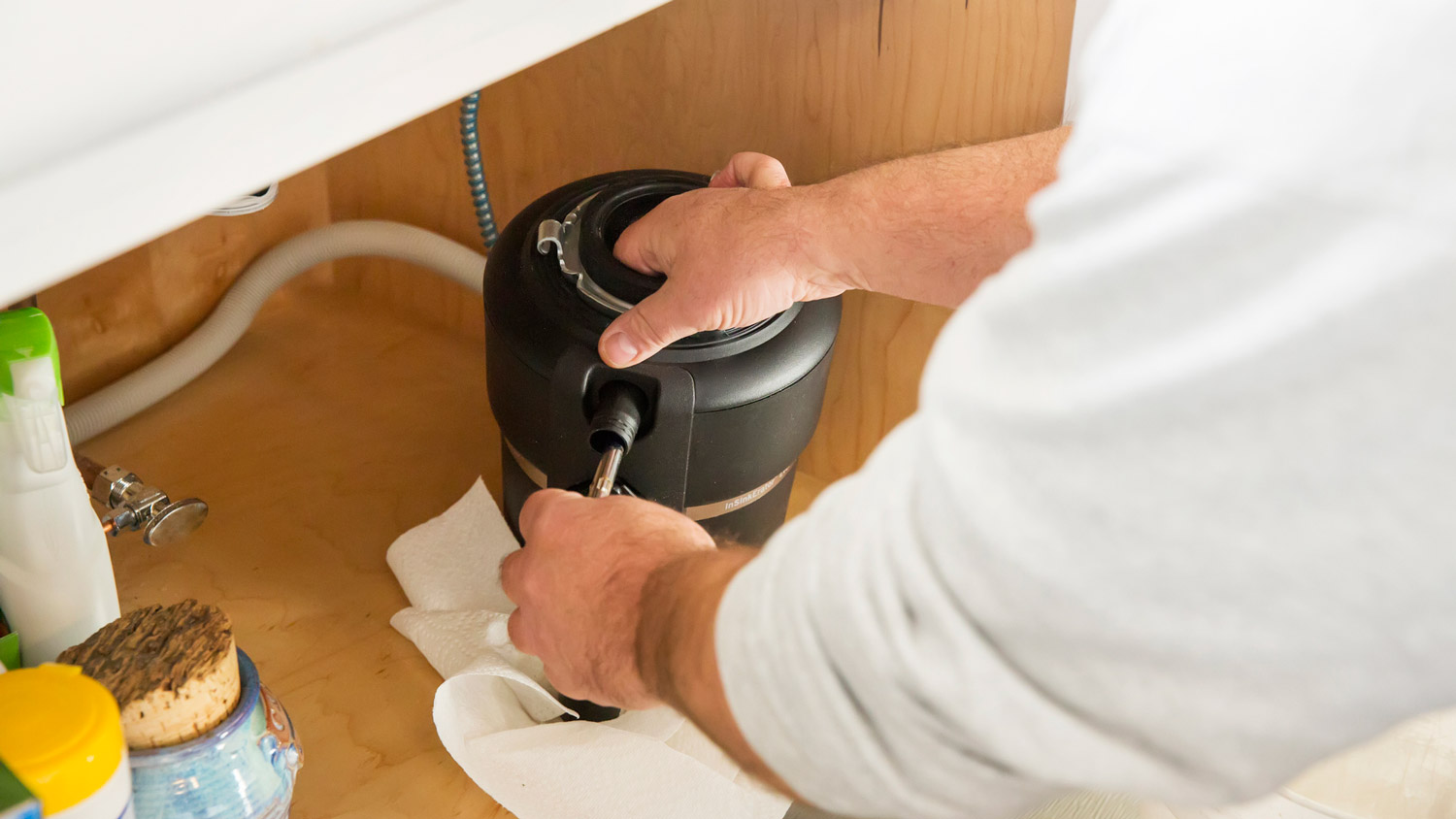
The cost to add plumbing to a detached garage depends on several factors, including the type of plumbing and the garage's distance from your home.
The right maintenance can determine whether your garbage disposal sinks or swims


It’s pretty fun to go on a power trip and watch your garbage disposal destroy whatever you shove down there. Be careful, though—going too hard might send its lifespan down the drain. To get the most out of your disposal, follow these nine tips for preventative maintenance.
Don’t take the word “garbage” too literally; your disposal should break down food waste, not act as a makeshift trash can. Broken glass, paper towels, produce stickers, photos of your ex—these are all out of the question. No matter how tempting it is to obliterate these items, opt for tossing them in the trash can.
It’s extremely important to never operate your garbage disposal without running water—and cold should be your go-to temperature. Cool temperatures will help solidify any fats or grease, allowing it all to run smoothly through the pipes.
There are many things you shouldn’t put down your disposal, including hard and fibrous food waste. Here are the biggest no-nos:
Celery
Rhubarb
Broccoli
Artichokes
Greens such as kale, lettuce, and chard
Fruit pits
Nuts
Eggshells
Cornhusks
Bones
Seafood shells
Many of these can go in your compost pile (aside from the meat products). Everything else can go right in the trash or into a soup pot.

Your trusty garbage disposal works wonderfully alongside your dishwasher, as it can grind up food scraps that would otherwise cause a clog. Still, you shouldn’t shove all your kids’ untouched veggies in at once. To maximize the lifespan of your disposal, stick with small, manageable loads. Chop up any large pieces as necessary or toss them in the trash.
Avoid putting peels or skins from apples, bananas, potatoes, onions, etc. down your disposal. These tend to form an icky sink-clogging goo rather than getting disposed of properly. The exception here is citrus peels from lemons and oranges. Grinding small pieces of these can freshen up your garbage disposal (though commercial garbage disposal cleaners are far more effective).
Hot water can dissolve sticky residue and melt greasy messes, so you’d think it would power through whatever gunk is clogging your garbage disposal. However, this isn’t the case. The heat will melt fats and grease, leaving you with an even bigger mess once they re-solidify.
It’s tempting to grab your pickle fork when you can see it down there, but you should never use your hands. Even if your disposal isn’t activated, it’s still sharp and can easily cut you. What’s worse, dislodging a clog can spring the disposal into action, so you definitely won’t want your hand in there if that happens. Instead, make sure the power source is shut off at the breaker and use tongs or pliers to grab whatever is stuck.
Cleaning your disposal regularly will help prevent buildup and clog-causing residue. As mentioned before, chopped-up citrus peels from lemons and oranges can act as a quick way to freshen things up, but they won’t do anything to clear any lingering sludge. To effectively clean your disposal, look for commercial cleaners specifically meant for garbage disposals. Skip harsh drain-cleaning chemicals, as these can damage the unit’s parts.

Deciding whether to repair or replace your disposal can be tricky—but there are a few key death rattles to look for. Basic garbage disposal troubleshooting can help you get to the bottom of the issue, though some problems will call for a professional. A trusted plumber near you or a local handyperson can help determine whether yours is beyond saving and facilitate garbage disposal repair and replacement.
From average costs to expert advice, get all the answers you need to get your job done.

The cost to add plumbing to a detached garage depends on several factors, including the type of plumbing and the garage's distance from your home.

Pipe leak repair costs depend on the location and severity of the leak, as well as the type of pipe being replaced. Use our guide to price out repair work.

This guide to toilet installation cost covers what you can expect to pay when adding a new toilet to an existing or new bathroom.

Copper is prone to leaks from corrosion, particularly pinhole leaks. This guide will show you how to fix a copper pipe leak in seven different ways.

Dealing with slow-draining sinks or a full toilet clog? Use this DIY guide on how to clear clogged drains to get your drain working again in no time at all.

Learn how to remove a bathtub drain for cleaning or replacing, whether you’ve got a simple toe-touch stopper or a more complicated trip-level model.